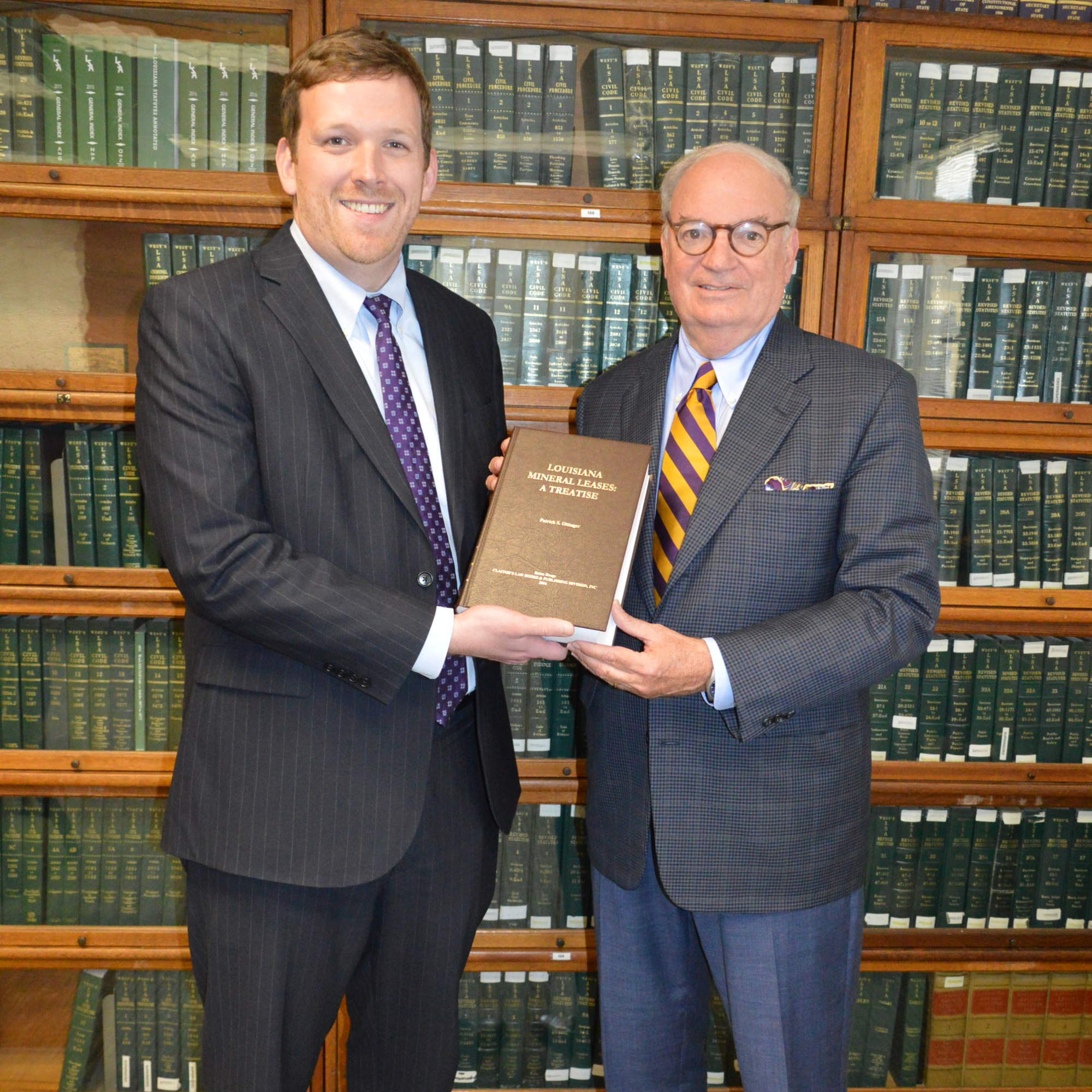Jerry Edwards Makes History as First Black Federal Judge in Louisiana Western District Jerry...
Recent News
Blanchard Walker Re-Elects President
Shreveport, Louisiana–April 19, 2024–Blanchard Walker’s shareholders and directors re-elected...
Blanchard Walker Welcomes Calvin Combs
Blanchard Walker is pleased to announce the addition of Calvin Combs as a new Associate Attorney....
Attorney Spotlight – Mac Zentner
Mac Zentner, a recent graduate of the Greater Shreveport Leadership Program, has reached a...
Attorneys
If you need knowledgeable and skilled legal representation, check out our team profiles to find the best attorney to fit your needs.
Areas of Practice
We offer a multitude of legal services that our passionate team of lawyers and staff can help benefit our clients. Explore our areas of practice.

Brian C. Flanagan, Associate at Blanchard Walker, O’Quin & Roberts, is one of two reviewing editors for Professor Patrick S. Ottinger’s Louisiana Mineral Leases: A Treatise. The 1,452 page treatise, published by Claitor’s Law Books and Publishing Division, Inc. is the culmination of five years of research and writing by Mr. Ottinger, and is a comprehensive study of the evolution of the mineral lease, the contours and various attributes of the lease relationship; the statutory laws that regulate it, and the clauses (both customary and special) contained in the mineral lease forms used in Louisiana. On June 30, 2016, Professor Ottinger presented Mr. Flanagan with a personal copy of the Treatise.
Reflecting on the Treatise, Mr. Ottinger stated, “When I undertook this project, I soon realized the need to enlist the help of one or two former students to assist in the review and editing of the Treatise. I immediately thought of Brian Flanagan, a former student who attained the highest grade in my class on Mineral Rights at the Paul M. Hebert Law Center, and who displayed very early a real interest in oil and gas law. Brian did not hesitate in accepting my invitation to participate. Drawing on his talents gained in a variety of engagements in law school, Brian collaborated with another former student to examine and scrutinize in great detail the many drafts involved in the process of writing the Treatise. The fact that he is an associate in one of the premier oil and gas firms in the state — a firm which, over its almost century of existence, has been involved in many of the important cases highlighted in the Treatise (usually as the prevailing advocate) — was only a plus. I am very pleased with the final product, and greatly appreciate the efforts of Brian in bringing the Treatise to fruition.”
